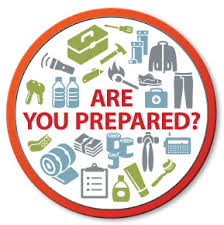British Columbians mistake pandemic preparedness with power outage readiness
A new BC Hydro report finds many British Columbians feel more prepared for storm-related power outages after stocking up on household supplies for COVID-19, despite most not having an emergency kit or plan.
The report titled, “Stocked up but unprepared: How COVID-19 preparation has created a false sense of storm season security” finds the severity and frequency of storms causing damage to BC Hydro’s electric system is increasing. New data from BC Hydro shows a 117 per cent increase in these storms from 52 in 2014 to an average of 113 over the past three years. This has resulted in an average of one million customers being impacted by storm-related power outages annually, including two of the largest individual storms in BC Hydro’s history in 2018 and 2020.
A new survey[1] commissioned by BC Hydro found nearly 20 per cent of British Columbians think they are more prepared for winter storms this year because of COVID-19. This sense of preparedness comes from stocking up on household supplies like toilet paper, hand sanitizer, disinfectant wipes, groceries and alcohol – which 44 per cent indicate they have done.
Unlike years past, half of British Columbians would not leave home to wait out an extended outage in a public place like a mall, restaurant or movie theatre because of the pandemic. However, even with a desire to stay closer to home and the increase in storm-related power outages, over half of British Columbians do not have an emergency preparedness kit – and most do not plan to purchase one this winter. About 30 per cent also admitted they have not taken any steps to prepare for an outage.
The report also found whether they are prepared or not, British Columbians have three top concerns when the power goes out: two-thirds worry about food in the fridge or freezer spoiling; 16 per cent worry about feeling cold; and, nearly 10 per cent worry about their cell phone dying.
To prepare for a unique storm season this year, BC Hydro recommends:
- Being prepared: Have an emergency preparedness kit that will last at least 72 hours. The kit should include: a first aid kit, bottled water, non-perishable food items, a flashlight and batteries, and a battery pack for your cell phone, among other things.
- Knowing what to do: Make a plan for your family or household.
- Staying safe: A downed line is an emergency, and customers should stay back at least 10 metres and call 9-1-1 immediately should they encounter one.
For more information on what to do before, during and after a power outage, visit bchydro.com/getprepared.

























